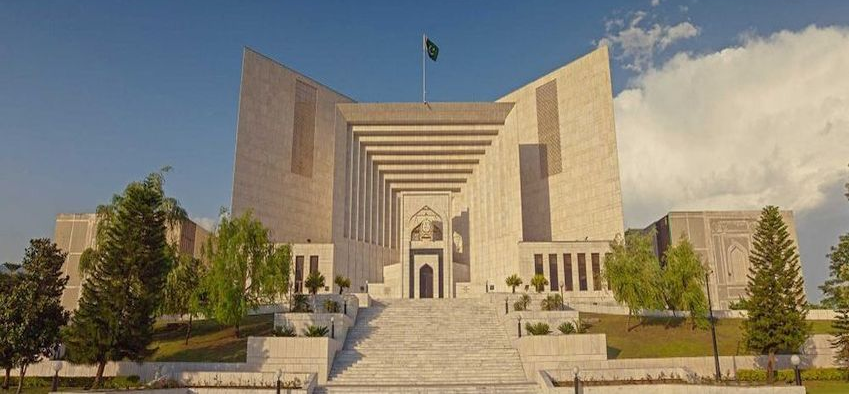Supreme Court of Pakistan Dismisses Review Petitions in Margalla Hills Encroachment Case
Islamabad 11-09-2024: In a landmark ruling, the Supreme Court of Pakistan has dismissed multiple review petitions and applications related to illegal encroachments in the Margalla Hills National Park, reaffirming the environmental protections in place for the ecologically sensitive area. The case, which involved prominent restaurants such as La Montana, Gloria Jeans, and Monal, centered on the legality of their operations on protected land without valid licenses.
A bench led by Mr. Chief Justice Qazi Faez Isa, along with Mr. Justice Jamal Khan Mandokhail and Mr. Justice Naeem Akhtar Afghan, delivered the judgement in [Civil Review Petition No. 360 of 2024] and related petitions, bringing an end to long-standing disputes involving commercial operations within the National Park.
The petitioners, including Capital View Point Restaurant (La Montana and Gloria Jeans), argued that they held valid licenses issued by the Capital Development Authority (CDA) since 1999. However, the Court found that their licenses had expired in 2001 and no legal extensions were provided thereafter. The Court rejected their claim that the Metropolitan Corporation Islamabad (MCI) had extended their license in 2018, stating that the MCI had no authority over the license, which was originally issued by the CDA.
Mr. Chief Justice Qazi Faez Isa ruled that the operations of these restaurants were illegal and in violation of environmental laws, specifically the Islamabad Wildlife (Protection, Preservation and Management) Ordinance, 1979. The judgement emphasized that commercial activities in protected areas like Margalla Hills were prohibited, and the restaurants had caused significant environmental degradation, including destruction of natural habitats and flora.
In a notable aspect of the ruling, the Court addressed the issue of agreements made by minority partners of the firm operating the restaurants. Dr. Muhammad Amjad, a partner of Capital View Point Restaurant, challenged the validity of an agreement made by a minority partner to vacate the premises. The Court dismissed this argument, citing the Partnership Act, 1932, which grants authority to all partners to bind the firm, making such agreements legally enforceable.
The case also involved the operations of the Monal Restaurant, whose lease had expired in March 2021. The Monal Group of Companies had voluntarily agreed to vacate the land but later sought to challenge the order. The Court ruled that Monal had no legal right to continue operations as its lease had not been renewed. The Court further noted that Monal’s attempt to claim a refund of the rent paid to CDA was unjustified.
The Court referred to Monal’s continued operations as trespassing and highlighted their failure to abide by the terms of the lease agreement. The ruling also made clear that once a Supreme Court of Pakistan judgement is issued, it is binding on all lower Courts, effectively rendering any pending intra-Court appeals in the Islamabad High Court redundant.
The Court also rejected the claim of Sunshine Heights (Pvt.) Limited, which had argued that it was allotted 6,000 square yards of land in the National Park. The Court found that the allotment, made in 1996, was canceled in 1998 due to non-payment of dues and lack of transparency. Furthermore, no construction had taken place on the land in the 28 years since the allotment, and the company’s claim was dismissed.
The judgement was critical of government officials who had failed to protect the National Park from illegal encroachments. In particular, the Court admonished Brigadier (Retired) Falak Naz, the Legal Advisor to the Ministry of Defense, for his failure to ensure compliance with Court orders. The Court expressed concerns over his conduct, stating that his loyalty to the law appeared compromised.
In dismissing the review petitions, the Court underscored the importance of upholding environmental protections, particularly in ecologically sensitive areas like the Margalla Hills National Park. The Court warned that continued violations would have long-term negative impacts on the environment, including the destruction of natural resources and wildlife habitats.
All review petitions and applications, including [Civil Review Petition No. 360 of 2024], were dismissed. The Court’s judgement serves as a strong reminder of the importance of environmental conservation and the rule of law, particularly when it comes to the protection of Pakistan’s natural heritage.
The judgement has been hailed by environmental advocates as a significant step toward preserving the Margalla Hills and preventing further encroachments by commercial enterprises.
This ruling reinforces the commitment of the judiciary to uphold environmental laws and hold accountable those who violate the legal frameworks designed to protect Pakistan’s national parks and natural resources.








